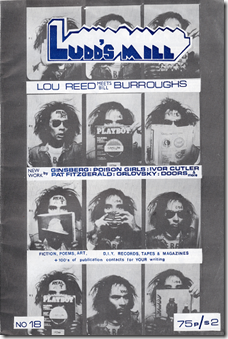Driver
Driver shifts into top and accelerates
as if time were dying on a fast fuse.
The lights
of the approaching cars are
blurs in the night.
Blurs passing blurs in the night.
Worlds of horizons
pass under their wheels.
30 April 1979
I’ve never regarded myself as much of a nature poet. Whereas I was inspired by the poems of Larkin and Owen we studied at school those by Ted Hughes that were included in the syllabus did little for me. The poems we ended up covering were, I have since discovered, all from Lupercal bar one, ‘The Jaguar’ which is from his first collection, The Hawk in the Rain. The much-anthologised later poems—‘Pike’, ‘Hawk Roosting’, ‘View of a Pig’—have never excited me and I’m not sure I’ve read anything by him after 1960; maybe one or two from Crow: From the Life and the Songs of the Crow but definitely nothing after 1970.
‘The Jaguar’ was the exception. It impressed me although not as much as like Larkin’s ‘Mr Bleaney’. Perhaps because both are about being trapped and I got that. The poem is five stanzas long and describes a visit to a zoo. The apes, the parrots and snakes are glossed over; that’s not why we’re here. We’ve come to see the jaguar:
On a short fierce fuse. Not in boredom—
The eye satisfied to be blind in fire,
By the bang of blood in the brain deaf the ear—
He spins from the bars, but there’s no cage to him
More than to the visionary his cell:
His stride is wildernesses of freedom:
The world rolls under the long thrust of his heel.
Over the cage floor the horizons come.
In 1954 Ted Hughes worked in the kitchens at Regent’s Park Zoo. Out of his window, in one of the transit cages, lived a jaguar and so he had time to observe him. The following year Larkin moved from Belfast to Hull to take up the position of librarian at Hull University; at first he stayed in a boarding house exactly as described in ‘Mr Bleaney’. They may have been contemporaries but they were very  different men. Larkin, in a private letter (in pubic they were cordial enough), referred to Hughes as a ‘boring old monolith, no good at all—not a single solitary bit of good’. Hughes, at first at least, genuinely admired Larkin; later he complained that various newspapers “have prostrated themselves and finally deified” him. As different as chalk and cheese they were, nevertheless, quintessentially English poets: Larkin inspired by England’s “dark Satanic mills”, Hughes by its “green and pleasant land”. The narrator in ‘Mr Bleaney’ lies in what is, in effect, his coffin. The jaguar, on the other hand, paces his cell. I could relate to both.
different men. Larkin, in a private letter (in pubic they were cordial enough), referred to Hughes as a ‘boring old monolith, no good at all—not a single solitary bit of good’. Hughes, at first at least, genuinely admired Larkin; later he complained that various newspapers “have prostrated themselves and finally deified” him. As different as chalk and cheese they were, nevertheless, quintessentially English poets: Larkin inspired by England’s “dark Satanic mills”, Hughes by its “green and pleasant land”. The narrator in ‘Mr Bleaney’ lies in what is, in effect, his coffin. The jaguar, on the other hand, paces his cell. I could relate to both.
You can see where I’ve pinched from Hughes in ‘Driver’. I actually thought I’d been more obvious—if you’d asked me I would’ve sworn I’d borrowed a complete line—but it seems not and that pleases me. Suffice to say it was a poem that stayed with me because here I am several years after leaving school still affected by it.
In 1979 I would’ve had my driving licence. Ironically by this time I no longer needed to drive because I’d moved away from home and lived literally across the road from my office but I did miss the car. Like most young lads I had lead boots and I have to be honest, I was lucky to reach eighteen. But I did love the impression of freedom that came with a set of car keys.
‘Driver’ first appeared in Ludd’s Mill No.18.